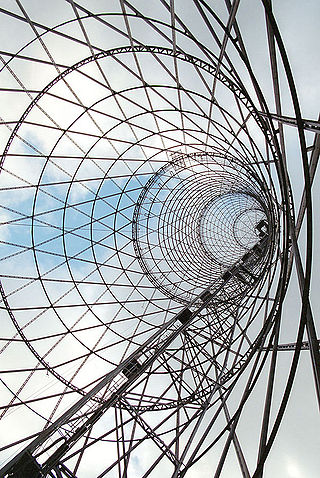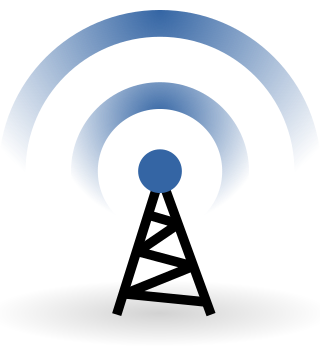Related Research Articles
Telecommunications in the Dominican Republic include radio, television, fixed and mobile telephones, and the Internet.

Communications in Gibraltar comprise a wide range of telephony systems, Internet access, broadcasting and satellite control. There is also printed and online media. Regulation of telecommunications and broadcasting are the responsibility of the Gibraltar Regulatory Authority (GRA), established by means of the Gibraltar Regulatory Authority Act in 2000.
Telecommunications in Jamaica include the fixed and mobile telephone networks, radio, television, and the Internet.
With Macau's small population and market, only a few local media options are available for the local people. Because radio signals, newspapers and magazines from Hong Kong are available in Macau, the local media are always a minority group in terms of sales and number of viewers.
Nepal's telecommunication network has increased over the years significantly, with the number of telephone users reaching 40,789,198 as of 14 May 2019.
Telecommunications in Poland include radio, television, fixed and mobile telephones, and the Internet.

The telecommunications in Russia has undergone significant changes since the 1980s, radio was a major new technology in the 1920s, when the Communists had recently come to power. Soviet authorities realized that the "ham" operator was highly individualistic and encouraged private initiative – too much so for the totalitarian regime. Criminal penalties were imposed but the working solution was to avoid broadcasting over the air. Instead radio programs were transmitted by copper wire, using a hub and spoke system, to loudspeakers in approved listening stations, such as the "Red" corner of a factory. This resulted in thousands of companies licensed to offer communication services today. Due to the enormous size of the country Russia today, the country leads in the number of TV broadcast stations and repeaters. The foundation for liberalization of broadcasting was laid by the decree signed by the President of the USSR in 1990. Telecommunication is mainly regulated through the Federal Law "On Communications" and the Federal Law "On Mass Media"
In Venezuela the first law on telecommunications was approved in 1940. It identified the responsibility of the state in regard to telephone and other telecommunication systems, including radio and television services.

A wireless network is a computer network that uses wireless data connections between network nodes. Wireless networking allows homes, telecommunications networks and business installations to avoid the costly process of introducing cables into a building, or as a connection between various equipment locations. Admin telecommunications networks are generally implemented and administered using radio communication. This implementation takes place at the physical level (layer) of the OSI model network structure.
There are a number of systems of communication in Uganda, including a system of telephony, radio and television broadcasts, internet, mail, and several newspapers. The use of phones and the internet in Uganda has rapidly increased in the last few years.

Wireless communication is the transfer of information (telecommunication) between two or more points without the use of an electrical conductor, optical fiber or other continuous guided medium for the transfer. The most common wireless technologies use radio waves. With radio waves, intended distances can be short, such as a few meters for Bluetooth or as far as millions of kilometers for deep-space radio communications. It encompasses various types of fixed, mobile, and portable applications, including two-way radios, cellular telephones, personal digital assistants (PDAs), and wireless networking. Other examples of applications of radio wireless technology include GPS units, garage door openers, wireless computer mouse, keyboards and headsets, headphones, radio receivers, satellite television, broadcast television and cordless telephones. Somewhat less common methods of achieving wireless communications involve other electromagnetic phenomena, such as light and magnetic or electric fields, or the use of sound.
Wireless local loop (WLL) is the use of a wireless communications link as the "last mile / first mile" connection for delivering plain old telephone service (POTS) or Internet access to telecommunications customers. Various types of WLL systems and technologies exist.
Nepal Doorsanchar Company Ltd., popularly known as Nepal Telecom or NTC, is a state-owned telecommunications service provider in Nepal with 91.49% of the government share. The company was a monopoly until 2003, when the first private sector operator, United Telecom Limited (UTL), started providing basic telephony services. The central office of Nepal Telecom is located at Bhadrakali Plaza, Kathmandu. It has branches, exchanges and other offices in 184 locations within the country.

Wi-Fi calling, also called VoWiFi, refers to mobile phone voice calls and data that are made over IP networks using Wi-Fi, instead of the cell towers provided by cellular networks. Using this feature, compatible handsets are able to route regular cellular calls through a wireless LAN (Wi-Fi) network with broadband Internet, while seamlessly change connections between the two where necessary. This feature makes use of the Generic Access Network (GAN) protocol, also known as Unlicensed Mobile Access (UMA).
Telecommunications in Montenegro includes radio, television, fixed and mobile telephones, and the Internet.

Sri Lanka Telecom PLC, doing business as SLT-MOBITEL, is the national telecommunications services provider in Sri Lanka and one of the country's largest companies with an annual turnover in excess of Rs 40 billion. The company provides domestic and corporate services which include fixed and wireless telephony, Internet access and IT services to domestic, public and business sector customers. As of 2018 SLT-MOBITEL was Sri Lanka's second largest mobile network operator with over 7.9 million subscribers.
The 3GPP has defined the Voice Call Continuity (VCC) specifications in order to describe how a voice call can be persisted, as a mobile phone moves between circuit switched and packet switched radio domains.
Telecommunications in Ivory Coast include radio, television, fixed and mobile telephones, and the Internet.
Iristel is a Canadian provider of telecommunication services that is a competitive local exchange carrier (CLEC). The company was founded in 1999 and is headquartered in Markham, Ontario.

A mobile broadband modem, also known as wireless modem or cellular modem, is a type of modem that allows a personal computer or a router to receive wireless Internet access via a mobile broadband connection instead of using telephone or cable television lines. A mobile Internet user can connect using a wireless modem to a wireless Internet Service Provider (ISP) to get Internet access.
References
- ↑ "Telecom Niue Company Ltd". telecomniue.net. Archived from the original on 4 October 2018. Retrieved 26 July 2020.
- ↑ "Death and crime not major focus for Niue Star newspaper", Australian Broadcasting Corporation, 28 September 2008
- ↑ "Digital 2022: Niue". DataReportal. Retrieved 5 November 2022.